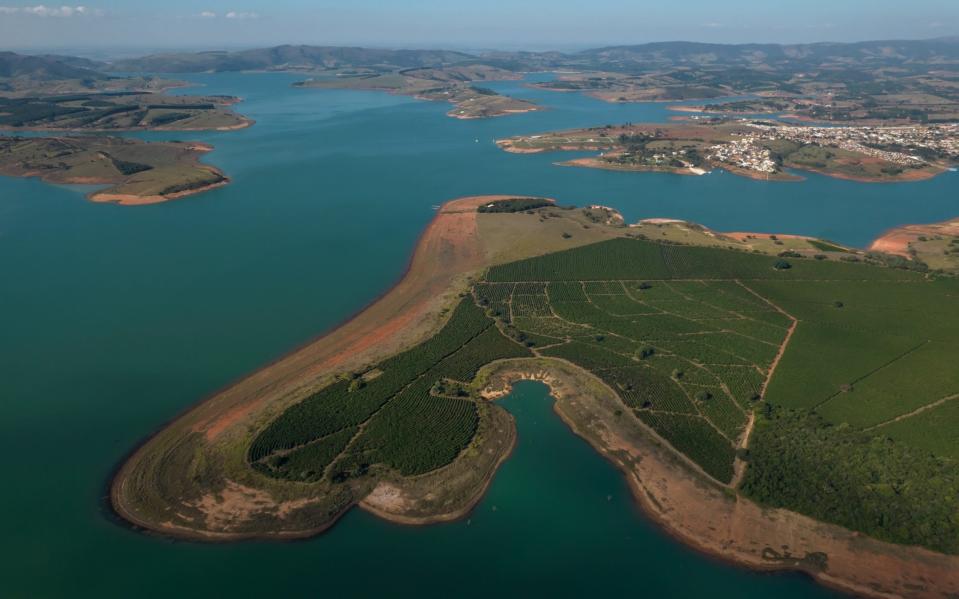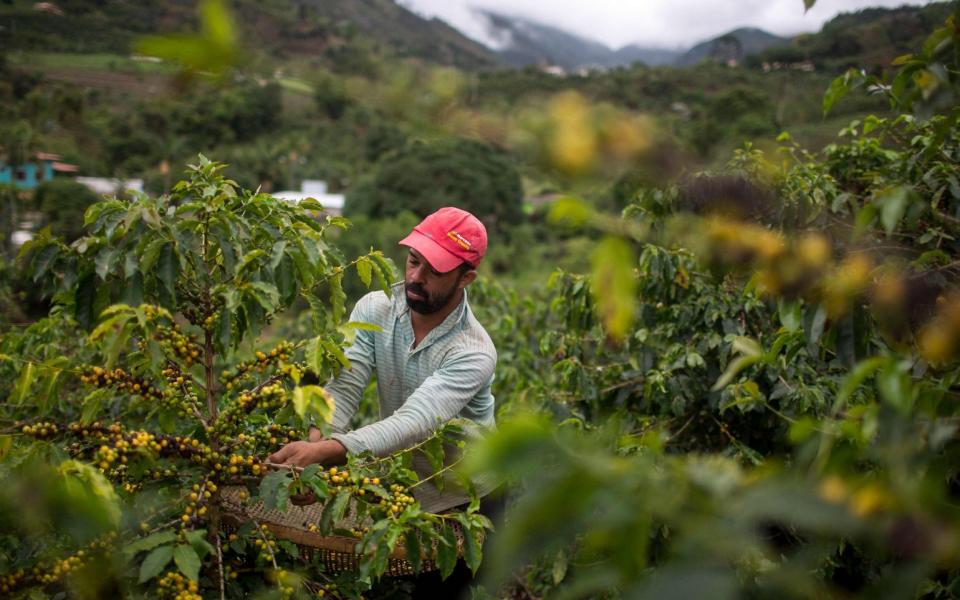Brazilian frosts threaten costlier coffee

Bleary-eyed Britons don’t usually ponder the Brazilian weather when they reach for their daily caffeine fix, but the topic could hit them in the pocket before long.
As a nation, we knock back an estimated 104m cups of coffee every day. However, industry experts are warning over the impact on our coffee intake from freak frosts savaging the harvests of the South American exporter.
More than a quarter of the UK’s coffee imports come from Brazil, typically of the higher-quality arabica variety rather than the robusta beans used in instant granules. After a decade of placid pricing, the country’s extreme weather has pushed the cost of arabica up 50pc in the past 12 months and 13pc in July alone to above $2 a pound at one point.
Judy Ganes, one of the world’s foremost authorities on the commodity with almost 40 years of experience, warns of more to come. The Panama-based analyst has flown down to Brazil three times in the past year to inspect the damage done first by the drought last autumn, and then the frosts.
Ganes has covered some 2,800 sq km on her trips. Earlier this month she hopped a fence near Franca in Sao Paulo and “made friends with a couple of barking dogs” to hike down and inspect the results of Brazil’s worst frost since 1994.
To make matters worse, there was another frost last week, and yet another is forecast for this weekend, although a milder forecast eased arabica prices on Friday. That said, she adds: “There have never been three frosts in one winter, let alone in the same month - that's based on weather data going back to 1882.”
While most of this year’s crop has been harvested, the real pressure will come next year. The drought last year hit the older coffee trees, while the frosts this time have taken their toll on the newer plants, closer to the ground. Trees stressed by the extreme conditions are producing leaves, rather than bean-yielding buds.
The full extent of the damage will not be known until September, but the analyst estimates at least 5m 60kg bags of coffee – more than a tenth of the country’s exports – could be lost. Brazil’s stockpiles are also low compared with 1994, which she thinks could push arabica to $3 a pound - levels not seen for a decade.
Soaring freight costs post-Covid and the need to restock from reopening hotels and other venues will add to that price squeeze. She adds: “The price has to be high enough to encourage growers in Brazil to replant and expand and give them that fortitude to cover the losses that they’ve had, and encourage other growers around the world to step up their production also. It’s not like [oil cartel] Opec, where you just turn on the spigot.”
Henry Clifford, a trader at coffee merchant DR Wakefield, says some of the biggest buyers hedge their supply, which should delay price rises for up to 12 months. But the spike has also caused a standoff between producers and buyers.
"Essentially we’ve had everyone from Peru to Brazil to Honduras wanting to fix the price at a high price. And a lot of the roasters, who have to fix the price at some stage, are either trying to fix all their nearby positions just in case the price continues to rise, or hold off for a bit and see where the market is going. But roasters roast coffee for a living, so they have to buy at some point,” he says.
Clifford points out that the price of coffee is “quite inelastic” and rarely passed on to consumers. But he adds that “certainly coffee roasters, coffee shops, they will all feel this quite significantly”, which could lead to building price pressure. “It will push up roasters’ cost of production, and they will have to either buy cheaper lower quality to fulfil their contracts or pass the price to their customers.”
Ganes says that drinkers should also keep an eye on the size of their grande in case firms turn to “shrinkflation” to hold down prices.

The temptation will be there as the margins on the average cup of coffee are vast. Typically a kilo of coffee might cost $3 to $4 but yield enough for 60 cups selling at almost £3 each, making the cost of the commodity the merest fraction of the final price.
But costs are not rising in isolation, according to Luke Underdown, founder of Kent-based Garage Coffee. Underdown, a roaster with three shops, mainly buys from Colombia and Mexico rather than Brazil but is concerned about wider pressure. “As a coffee business, we’re affected by lots of other things, like packaging and cups with the Suez Canal … it keeps adding up then all of a sudden you have to adjust your prices for your customers.”
Over the longer term, climate change could lead to higher prices unless growers can make coffee trees more resistant, according to Paul Rooke, chief executive of the British Coffee Association. “If we don’t, in 20 years’ time we might find that actually demand is far exceeding supply, and that will have pricing implications. Some countries may find that they just can’t produce coffee because they no longer have the climate to produce it.”
In the short term, the phased withdrawal of Covid-19 support such as the Chancellor’s VAT cut for leisure and hospitality firms, which moves back to 20pc next March, and the return of business rates bills will increase the strain.
Underwood adds: “We’re going to get to a point where the cost of things have gone up, and all the discounts which have been applied no longer apply. All of those things are going to come together at a certain point, and then real decisions have to be made.” They could be expensive ones for the nation’s coffee lovers.

 Yahoo Finance
Yahoo Finance 